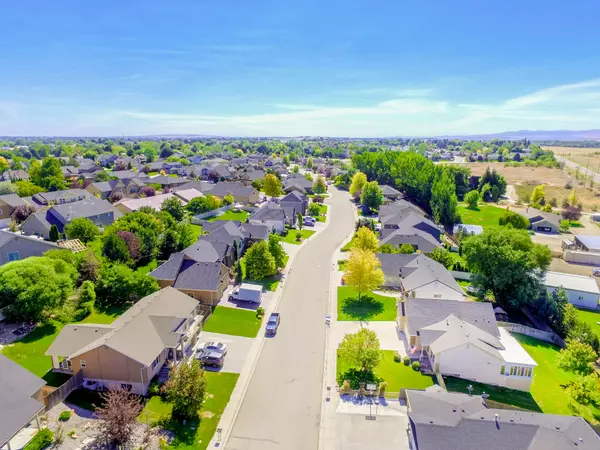How to Use Price Reductions to Sell Your Home Faster

How to Use Price Reductions to Sell Your Home Faster
Introduction
When selling a home, time is of the essence, and finding the right strategy to sell faster can make all the difference. One method that has proven successful is using strategic price reductions. But how do you know when and by how much to lower your price? In this post, we’ll explore why price reductions work, how to time them effectively, and tips to calculate the right reduction to move your property faster.
Call to Action: Ready to price your home right? Get an Instant Home Valuation today with Living in Idaho at LPT Realty and discover how much your home is worth!
Why Price Reductions Work

A price reduction can immediately draw the attention of potential buyers who may have initially dismissed your property due to cost concerns. When a home is listed on the multiple listing service (MLS), many buyers set strict price limits based on their budget, cash flow, and loan approval. A small adjustment to the list price could place your property back in front of a buyer whose previous search criteria excluded it. Lowering the price not only brings the property into a new price range but also signals to buyers that the seller may be more flexible during negotiations, increasing their interest in the real estate transaction. This can boost foot traffic and inquiries, raising the likelihood of an offer.
Beyond just increasing visibility, a price reduction taps into the psychology of homebuyers who want to feel like they’re getting the most value for their money. Buyers are often drawn to reduced prices, perceiving them as a better deal or opportunity for potential capital gains through future equity growth. Even seasoned investors, such as those involved in foreclosure or real property investments, are more likely to revisit a listing when they see a significant price drop. For a buyer concerned with mortgage payments, down payments, and insurance fees, any reduction in price opens up more financial options. Lowering the price may also help avoid issues like a home inspection negotiation falling through due to pricing or concerns about the property’s fair market value.
In addition, a price drop can generate marketing strategy benefits beyond direct buyer interest. It allows for advertisingopportunities, such as repromoting the property across online marketplaces or highlighting it in a new real estate agent’s database. Many platforms, like Opendoor or Movement Mortgage, prioritize homes that experience price changes, increasing exposure to potential buyers and increasing the chances of a simple sale. With the right real estate professional advising on the best pricing strategies, a well-timed reduction can increase the overall profit from the sale by reducing inventory time, minimizing carrying costs such as property taxes, and avoiding the need for refinancing or continued insurance payments. In a dynamic real estate market, understanding the balance between supply and demand and making timely price adjustments can be the difference between a quick sale and months of stagnation.
Increased Visibility:
Many online home listing platforms use pricing strategies to increase visibility for properties. When you lower the list price, your property often gets bumped back up to the top of the listings, catching the attention of new potential buyers. This boosts exposure and puts your home in front of more people who may have missed it before the price adjustment.
This feature is particularly useful in a competitive real estate market, where inventory is high and homes can get lost in the crowd. A price drop can trigger renewed interest, helping your home stand out, especially if buyers are using filters for more affordable options. It’s a simple yet effective tool to keep your property visible and increase the chances of a quick sale.
Buyer Psychology:
A well-timed price reduction can make buyers feel like they’re getting a great deal, which often sparks renewed interest in your property. This perception of value can increase the likelihood of attracting more potential buyers who are eager to act quickly.
As interest grows, you may even see multiple offers come in, creating a competitive environment. This can drive up the final sales price and help you close the deal faster, giving you an edge in the real estate market.
Market Competition:
In a market where comparable homes are priced lower, reducing your price brings your home back into competition.
According to real estate studies, homes that undergo price adjustments sell faster than those that don’t. Buyers often have price thresholds, and moving your listing below one of these can bring in a wave of interest.
Strategic Timing for Reductions

Timing is critical when it comes to implementing a price cut for your property. The first 2-3 weeks on the market are typically the most important for generating interest. During this period, your listing is fresh, and it’s often when serious buyers, those actively searching for a home, are paying the most attention. If your property doesn’t generate a strong level of interest in the form of inquiries, showings, or offers during this crucial window, it may indicate that your pricing strategy needs adjustment. Buyers tend to move quickly on homes that are priced well within market value, and if your home isn't getting attention, it might signal to both buyers and real estate agents that it’s priced too high for its perceived value or condition.
When your home has been on the market for a few weeks without much activity, it's important to evaluate your options. One of the key factors buyers look at when deciding on a property is the cost in relation to comparable homes in the area. If other homes in the same neighborhood or of similar size and condition are priced lower, buyers will naturally gravitate toward those properties. Conducting a fresh market analysis with your real estate agent can give you insight into whether your home is being overshadowed by competition. Reducing your price slightly can also spark renewed interest from buyers who might be re-evaluating their options or who had previously ruled out your home based on its initial price.
A timely price reduction can also give you a second chance to capture buyers who may have initially been on the fence. When buyers see that a home has been reduced in price, they often view it as an opportunity to negotiate or lock in a better deal. Additionally, many real estate platforms, such as the multiple listing service (MLS), will update the listing as a “new price,” which can help refresh the property in search results and get it in front of more potential buyers. This strategy can make a big difference in getting your property sold quickly, preventing it from lingering on the market, which can lead to even more significant financial losses through continued property taxes, mortgage payments, and insurance.
When to Reduce Your Price:
Lack of Showings: If you’ve had very few or no showings in the first few weeks, it could be a sign your price is too high.
High Web Traffic, Low Inquiries: If people are viewing your listing but aren’t requesting showings, this indicates the listing price may not align with buyer expectations.
Market Changes: Keep an eye on local market trends, which can shift quickly. Check out our Market SnapshotTool to stay updated.
How to Calculate a Price Reduction

The big question when considering a price reduction is, “By how much?” Striking the right balance is crucial. A small price drop, typically around 1-3%, may not generate enough interest to make a difference. If the reduction is too slight, it might go unnoticed by potential buyers, especially those who have already seen your listing but didn’t engage because of the initial list price. In competitive markets, buyers are often looking for deals, and they may only be drawn to a property if the reduction puts it within their financial reach. However, if the adjustment is too small, it may not create the urgency needed to make your property stand out in a crowded real estate market.
On the other hand, a drastic reduction in price can have significant consequences. While it may attract a flurry of interest, slashing the price too aggressively can eat into your profit margins and even send a signal to buyers that something might be wrong with the property. Dropping the price by 10% or more can cause you to lose substantial equity, which could affect your bottom line, especially if you’re dealing with capital gains taxes, mortgage balances, or other financial obligations tied to the sale. Additionally, an overly large reduction might leave you with less room for negotiation during the closing process, especially if buyers come in expecting to reduce the price even further through contract contingencies like home inspections or repair costs.Here’s a simple guideline:
Small Reduction (1-3%): Effective if you're close to market value and want to nudge more interest.
Moderate Reduction (5-7%): Ideal if you’re getting showings but no offers. This often brings in new buyers who were on the fence.
Large Reduction (10% or more): Consider this if your home has been sitting unsold for a long period or if the market has shifted dramatically.
A great way to decide on the right percentage is to use our Home Sale Calculator to predict your earnings based on different sale prices.
Monitoring Market Trends

It's essential to keep an eye on the local real estate market. Use tools like the Boise Market Trends to ensure your pricing stays competitive in the current landscape. Pay attention to factors like:
Average Days on Market: This can help you gauge whether homes in your area are selling faster or slower than expected.
Comparative Sales: Keep track of similar homes in your area and their sale prices.
Regularly checking in on the market will keep you informed and help you make well-timed pricing adjustments.
Final Thoughts
Price reductions are a strategic tool in real estate that can accelerate the sale of your property when executed properly. By reducing the list price, whether by a small margin or a significant percentage, you can attract more buyers and keep your home competitive in the current market. When buyers see a price adjustment, especially in a market where inventory is high, it signals that you're serious about selling your home, increasing the likelihood of a faster sale. Real estate agents often advise adjusting the price after reviewing market data and buyer feedback to ensure your home is positioned well.
Timing is also crucial when it comes to price reductions. Regularly reviewing a market analysis can provide insights into fair market value, helping you decide when to adjust the price. If your property remains on the market for too long without an offer, it could start to appear stale to potential buyers. Keeping an eye on interest rates, supply and demand, and other real estate trends can help you stay ahead of the curve. An effective pricing strategy, supported by solid market research and feedback, can keep your home attractive to buyers, especially if you’re facing competition in a crowded market.
In addition to pricing strategies, partnering with a real estate agent who understands how to leverage advertising and marketing strategies can be beneficial. An agent can help you assess the cost basis and tax implications of selling, such as capital gains tax or potential deductions on your tax return. They will also guide you through the necessary paperwork, including the real estate contract and escrow process, to ensure a smooth real estate transaction. With the right adjustments, your home could sell faster than you think, helping you maximize profit while minimizing financial risk.
Looking to sell fast? Use our Instant Home Valuation tool to see where your home stands in today's market!
FAQs
1. How to sell your home faster?
To sell your home faster, focus on pricing strategies and improving curb appeal. Setting the right list price from the start is crucial, as it attracts more potential buyers. Conducting a market analysis with your real estate agent will ensure your property is competitively priced in the current market. Additionally, small improvements like a fresh coat of paint, upgraded lighting, and tidying up the lawn can make a significant impact on how quickly your home sells. Utilizing virtual tours and professional photography will also draw more interest.
2. How to make your home sell faster?
To make your home sell faster, home staging and home improvements play a key role. Declutter the space, add neutral decor, and emphasize the best features of each room to make your home more appealing to buyers. Also, ensure that all necessary repairs are made, as buyers may hesitate if they anticipate high renovation costs. Leveraging online marketplaces like Opendoor or using video tours can increase exposure and lead to faster offers.
3. What makes a house sell faster?
Several factors can make a house sell faster: competitive pricing, curb appeal, and marketing strategies. Homes priced near their fair market value attract more buyers and lead to quicker real estate transactions. Enhancing your home’s curb appeal with fresh landscaping, clean exteriors, and repairs also boosts buyer interest. Finally, strategic advertisingusing multiple listing services (MLS) and platforms like Homelight or TourFactory ensures your property is visible to a larger audience.
4. Does a video help your home sell faster?
Yes, a video can help your home sell faster. Buyers appreciate the ability to take a virtual tour from the comfort of their homes, which can increase their interest before scheduling a showing. Video tours, especially when shared on platforms like TourFactory or Opendoor, offer an engaging way to showcase the property’s best features and attract a broader range of potential buyers. The more engagement your listing receives, the quicker it may sell.
5. How do I get my house ready to sell fast?
Getting your house ready to sell fast involves decluttering, making essential repairs, and enhancing curb appeal. Ensure the kitchen and bathrooms are spotless, and tackle minor issues like plumbing fixes or replacing outdated carpet. Staging can help buyers visualize themselves living in the space, while professional photography and video tours give your listing an edge in the online market. Don’t forget to consult with a real estate agent for a pricing strategy that aligns with market demand.
6. How renovations help you sell your home faster?
Renovations can dramatically improve your home’s marketability, especially when they focus on high-ROI areas like the kitchen, bathroom, and curb appeal. Buyers are often willing to pay more for homes that are move-in ready, reducing the need for further investment post-purchase. By updating features like flooring, lighting, and even paint, you can increase your home’s market value and attract more competitive offers, leading to a faster sale.
7. How to make your home more valuable and sell faster?
To make your home more valuable and sell faster, invest in key renovations and ensure your home is priced correctly from the start. Kitchen and bathroom upgrades, fresh paint, and enhancing your home’s energy efficiency through new windows or smart thermostats can increase its value. Also, a proper market analysis will help you set a list price that reflects the home's true market value, ensuring you attract more buyers without overpricing.
8. How to sell your home faster and for more money?
Selling your home faster and for more money requires a balance of competitive pricing, staging, and smart marketing strategies. List your property slightly below or at market value to generate multiple offers, which can drive up the final sale price. Home staging helps buyers visualize the space, and using video tours and professional photographyincreases the home’s visibility online. Additionally, focusing on curb appeal and making key renovations (like upgrading the kitchen or adding smart home features) will enhance both speed and profitability.
9. What is the quickest time you can sell a house?
The quickest time to sell a house can vary based on market conditions, but cash offers can close in as little as 7 to 14 days. Companies like Opendoor and iBuyers specialize in simple sales and fast real estate transactions, often allowing homeowners to sell their property quickly without the need for mortgages or lengthy escrow periods. This can be particularly useful for sellers facing urgent circumstances, such as relocation or financial strain.
10. How renovations help you sell your home faster?
Renovations can help you sell your home faster by increasing its market value and making it more appealing to buyers who are looking for move-in ready homes. Kitchen and bathroom upgrades, new paint, and updated flooring can have a significant impact on buyer interest. These improvements often lead to higher offers and a quicker sale, as buyers are less concerned about immediate repair costs and are more likely to move forward with an offer that reflects the home’s updated condition.
Categories
Recent Posts










Leave a Reply

